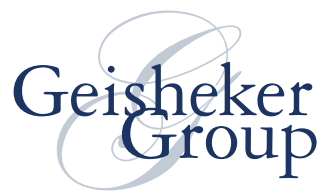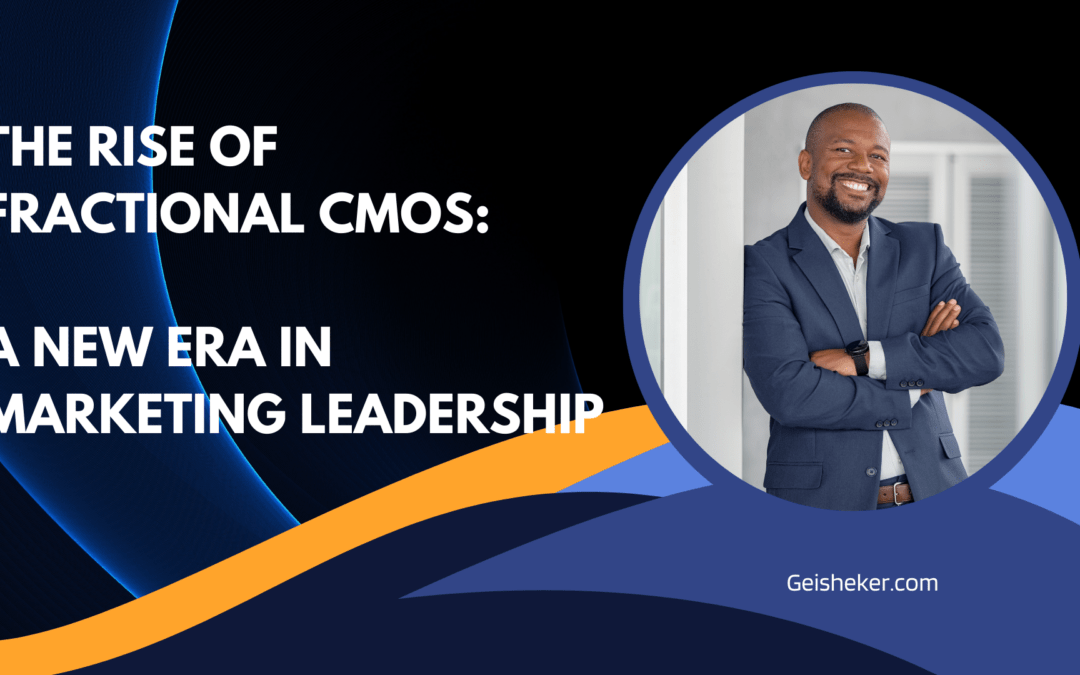In an ever-evolving business landscape, companies are constantly seeking innovative ways to stay competitive and efficient. One trend that has gained significant traction in recent years, and is poised to continue its upward trajectory in 2025 and beyond, is the adoption of fractional Chief Marketing Officers (CMOs) over traditional full-time CMOs. This shift represents a fundamental change in how businesses approach their marketing leadership and strategy.
Fractional CMOs, also known as part-time or on-demand CMOs, are experienced marketing executives who work with multiple companies on a part-time or project basis. They bring high-level expertise to organizations without the commitment and cost associated with a full-time executive hire. As we look towards 2025 and the years that follow, this model is becoming increasingly attractive to businesses of all sizes, from startups to established corporations.
The Growing Appeal of Fractional CMOs
The appeal of fractional CMOs lies in their ability to provide strategic marketing leadership and expertise on a flexible, cost-effective basis. This model allows companies to access top-tier marketing talent without the overhead of a full-time executive salary and benefits package. For many businesses, especially those in growth stages or undergoing transitions, this flexibility can be a game-changer.
Businesses across various industries have reported improved marketing performance and ROI after utilizing fractional CMO services. As the concept gains more traction, it’s projected that a significant portion of mid-sized companies could be utilizing fractional CMO services in some capacity by 2025.
Cost-Effectiveness in Uncertain Economic Times
One of the primary drivers behind the growing trend of fractional CMOs is cost-effectiveness, especially in light of economic uncertainties. As businesses navigate through potential economic downturns and market volatility, the ability to access high-level marketing expertise without committing to a full-time executive salary becomes increasingly attractive.
In times of economic uncertainty, businesses are looking for ways to maintain their competitive edge while managing costs. Fractional CMOs offer a solution that allows companies to stay agile and responsive to market changes without the long-term financial commitment of a full-time CMO.
Studies have shown that companies can achieve significant savings on executive costs by opting for fractional leadership roles. For a mid-sized company, this could translate to substantial annual savings, funds that can be redirected to other critical areas of the business or marketing initiatives.
Flexibility and Scalability
Another key factor driving the trend towards fractional CMOs is the flexibility and scalability they offer. In today’s fast-paced business environment, companies need to be able to adapt quickly to changing market conditions and customer needs. Fractional CMOs provide this flexibility, allowing businesses to scale their marketing leadership up or down as needed.
This flexibility is particularly valuable for businesses experiencing seasonal fluctuations or those undergoing significant transitions, such as product launches or market expansions. It allows companies to bring in specialized expertise for specific projects or periods without the long-term commitment of a full-time hire.
Access to Diverse Expertise and Fresh Perspectives
Fractional CMOs often work with multiple clients across various industries, giving them a breadth of experience that can be invaluable to businesses. This diverse background allows them to bring fresh perspectives and cross-industry insights that a traditional CMO might not have.
This cross-pollination of ideas can be particularly beneficial in today’s rapidly changing marketing landscape. As new technologies and channels emerge, having a leader who has experience across multiple industries can help companies stay ahead of the curve and identify new opportunities for growth.
Bridging the Skills Gap
The marketing field is evolving at an unprecedented rate, with new technologies, platforms, and strategies emerging constantly. This rapid evolution has created a skills gap in many organizations, where existing marketing teams may lack expertise in critical areas such as data analytics, AI-driven marketing, or emerging social media platforms.
Fractional CMOs can help bridge this gap, bringing in specialized knowledge and skills as needed. They can also play a crucial role in upskilling existing teams, sharing their knowledge and helping to build internal capabilities.
Focus on Results and ROI
Fractional CMOs are typically hired on a project or retainer basis, which naturally lends itself to a focus on results and ROI. Unlike full-time executives who may become entrenched in day-to-day operations, fractional CMOs are often brought in with specific goals and objectives in mind.
This results-oriented approach can be particularly beneficial for companies looking to achieve specific marketing outcomes, such as launching a new product, entering a new market, or improving overall marketing performance.
Challenges and Considerations
While the trend towards fractional CMOs is growing, it’s not without its challenges. One potential drawback is the lack of full-time presence in the organization. This can sometimes lead to issues with continuity or difficulty in fully integrating with the company culture.
Additionally, some businesses may find that they need more consistent, day-to-day marketing leadership than a fractional CMO can provide. In these cases, a full-time CMO might still be the better option.
The Future of Marketing Leadership
As we look towards 2025 and beyond, the trend of hiring fractional CMOs is expected to continue its upward trajectory. Several factors are likely to drive this growth:
- Continued economic uncertainty: As businesses navigate potential economic challenges, the cost-effectiveness of fractional CMOs will remain attractive.
- Increasing complexity of marketing: With the continued evolution of marketing technologies and channels, the need for specialized expertise is likely to grow.
- Shift towards more flexible work arrangements: The broader trend towards remote and flexible work arrangements aligns well with the fractional CMO model.
- Growing acceptance of fractional executive roles: As more companies experience success with fractional CMOs, the model is likely to become more widely accepted and adopted.
- Expansion to other C-suite roles: The success of the fractional CMO model may lead to similar arrangements in other executive positions, such as fractional CFOs or CTOs.
Preparing for the Fractional Future
As the trend towards fractional CMOs continues to grow, businesses and marketing professionals alike need to prepare for this shift in the marketing leadership landscape.
For businesses, this means being open to new models of accessing executive talent and thinking creatively about how to structure their marketing leadership. It also involves developing clear processes for integrating fractional executives into their operations and culture.
For marketing professionals, the rise of fractional CMO roles presents both opportunities and challenges. On one hand, it offers experienced marketers new ways to leverage their expertise across multiple organizations. On the other, it requires developing new skills in areas such as time management, rapid integration into new environments, and balancing multiple client relationships.
Education and training programs are also likely to evolve to support this trend. We may see the emergence of specialized courses or certifications focused on fractional executive roles, helping to prepare marketing leaders for the unique challenges of these positions.
Conclusion
The trend towards hiring fractional CMOs instead of full-time traditional CMOs is more than just a passing fad. It represents a fundamental shift in how businesses approach marketing leadership, driven by the need for flexibility, cost-effectiveness, and access to specialized expertise in an increasingly complex marketing landscape.
As we move towards 2025 and beyond, this trend is poised to continue its growth, reshaping the marketing leadership landscape. While it may not be the right fit for every organization, the fractional CMO model offers compelling benefits that are likely to appeal to a growing number of businesses.
For companies looking to stay competitive in a rapidly changing business environment, considering a fractional CMO could be a strategic move. It offers a way to access top-tier marketing leadership and expertise without the long-term commitment and cost of a full-time executive hire.
As with any significant business decision, careful consideration of the company’s specific needs, culture, and goals is crucial. However, for many organizations, the fractional CMO model may well represent the future of marketing leadership – a future that is flexible, cost-effective, and primed for success in an ever-evolving business landscape.
Hire a Leading B2B SaaS Fractional CMO
If your company needs a B2B SaaS fractional CMO, consider working with Peter Geisheker. Peter has been providing Fractional CMO services for over 20 years and has expertise in growth tactics and conversion optimization. View Peter’s SaaS fractional CMO case studies.


